Introduction
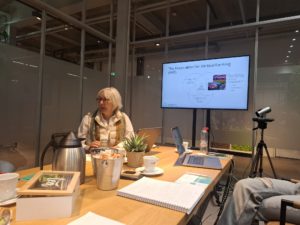 In recent years, vertical farming (VF) has become more prominent within the food system, offering the potential for locally grown, year-round produce in urban areas. This innovative approach is quietly revolutionizing how we think and approach food production. Following successful events in Madrid in February and Vienna in March, Amsterdam hosted the third AVF Roundtable of the year. These Roundtables, set to continue in 2025, highlight AVF’s commitment to hosting, fostering and weaving collaboration among and between diverse experts, which is essential for VF’s full potential to unfold.
In recent years, vertical farming (VF) has become more prominent within the food system, offering the potential for locally grown, year-round produce in urban areas. This innovative approach is quietly revolutionizing how we think and approach food production. Following successful events in Madrid in February and Vienna in March, Amsterdam hosted the third AVF Roundtable of the year. These Roundtables, set to continue in 2025, highlight AVF’s commitment to hosting, fostering and weaving collaboration among and between diverse experts, which is essential for VF’s full potential to unfold.
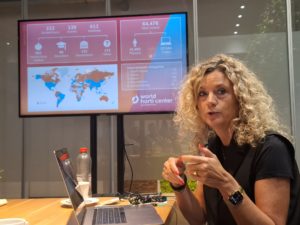 The Association for Vertical Farming (AVF) recently hosted a Roundtable with the World Horti Centre (WHC) in Amsterdam. The event, held on September 13th, 2024, brought together a diverse group of stakeholders from the greenhouse and indoor farming industry in the Netherlands. The discussion generated a weave of threads and expert led knowledge exchange leading to plans for further discussions and more coordinated collaborations with industry experts and stakeholders.
The Association for Vertical Farming (AVF) recently hosted a Roundtable with the World Horti Centre (WHC) in Amsterdam. The event, held on September 13th, 2024, brought together a diverse group of stakeholders from the greenhouse and indoor farming industry in the Netherlands. The discussion generated a weave of threads and expert led knowledge exchange leading to plans for further discussions and more coordinated collaborations with industry experts and stakeholders.
What was the Objective for the Dutch Roundtable
The objective for the Dutch Roundtable was: To understand local needs for vertical farming, noting that requirements in the Netherlands differ significantly from other local hubs.
Asking this question helps to bridge the gaps between stakeholders,and helps them to recognize the factors driving demand and influencing adoption in the Netherlands.
Diverse Participation for a Holistic View
Vertical farming brings together a wide range of disciplines. By encouraging dialogue and collaboration among local experts and stakeholders, we can leverage collective knowledge and spark innovative ideas to address challenges and drive the growth of vertical farming in local hubs.
Who joined us for the Roundtable?
The AVF was joined by participants from the leading Dutch greenhouse and indoor farming industry. The full list of participants was:
Christine Zimmerman-Loessel: Chair at the Association of Vertical Farming.
Isabelle van Doorn: Plant Scientist and Business Development Manager at greenhub solutions GmbH and also representing the Association of Vertical Farming.
Rob Smit: Sales Manager at Green Simplicity – Customizable vertical farming systems with full automation.
Sjoerd Kessels: Technical Project Manager at Philips, specializing in vertical farming.
Mirjam Boekestijn: CEO of Dutch Greenhouse Delta, focusing on internationalizing Dutch horticulture concepts.
Jacob Boxhoorn: Technical Sales Consultant at Bas van Zaal, specializing in greenhouse and vertical farming automation, particularly in moving plants.
Robin Urbanus: Business Developer with Hoogendoorn Growth Management.
David Meszaros: Smartkas, former CEO, specializing in growing strawberries in vertical farming (farm is no longer operational).
Renko Schuil: TTA – Expert in plant handling and selection, now focusing on indoor farming and automation.
Will Zuiderwijk: Account Manager at World Horti Center – Commercially responsible for Spain, experienced in tomato and floriculture.
Puk van Holsteijn: CEO of HortiHeroes and World Horti Center.
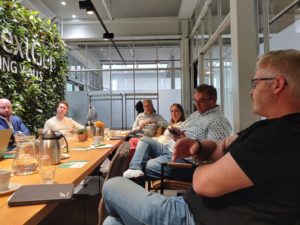 Themes and Takeaways
Themes and Takeaways
Discussions focused on the potential cooperation between all partners and in particular the AVF and WHC.
It was clear from the rich discussions that took place that these Roundtable events are ideal for highlighting the importance of cross-sector collaboration in the cities and hubs in which they take place. After such a successful evening, WHC and AVF plan to continue to run together more Dutch Roundtable events.
Potential Cooperation between AVF and WHC
Out of the in-depth discussions emerged potential areas for cooperation and collaboration between AVF and WHC, as well as many opportunities to seamlessly integrate the expertise and skills of the experts around the table from leading Dutch greenhouse and vertical farming organizations.
Moving forward, there is plenty of synergy for:
- Collaborative efforts and projects between TTA, Dutch Delta, WHC, AVF, and Hortiheroes to form a unified and strong organization.
- Developing Opportunities in the United Arab Emirates (UAE) between WHC and AVF around the Training Centres.
- Exploring Scaling Challenges – All the experts attending were well aware of the scaling challenges faced by vertical farming. There was broad agreement to investigate issues encountered during scaling, such as:
Hardware and Software Integration Failures: What are the learnings to be gained by evaluating failures in automation and technology integration?
Production Metrics: Switching the focus to an emphasis on comparing actual versus expected yields.
Material Quality: Addressing issues with sourced materials and environmental conditions. - Promoting Transparency and Standardization
Further exploring how to promote transparency in operations and address the lack of standardization in the industry. One suggestion is that this could be achieved by benchmarking vf against successful models in traditional horticulture. - Opening up to Innovation
Playing a role in advocating for a more open platform for discussing industry challenges, mistakes, and growth strategies. New ideas often come from the edges of the challenges, mistakes and growth that is already happening. What leaps of innovation could occur if we collaborated more while ‘playing’ at these edges together? 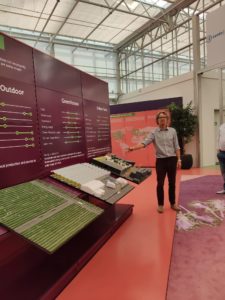 Practical Applications and Solutions
Practical Applications and Solutions
There was clear agreement from participants for the need to focus on practical applications and real-world solutions.
Plant growers are recognised as a key stakeholder, bringing with them their particular expertise and experience of how to grow a variety of plants. One particular area identified for further engagement and learning is with greenhouse growers who have a wealth of knowledge relating to propagation and germination methods.
- Local Collaboration
Local collaboration plays a key role in successfully developing a local framework for vf in the wider food system of the Netherlands. Further consideration will be given to developing partnerships with local entities like Hoogendoorn Growth, offering specialization in vertical farming. - Community Engagement
To create a ‘village’ of support for vertical farming requires and emphasis on collaborative discussions and knowledge sharing within the VF/CEA/Horticulture community.
Looking Forward – Future Visions
The Future Vision from the Dutch Roundtable is finding ways to navigate and maintain a balance between dream-driven innovation and practical, fact-based development.
Conclusion
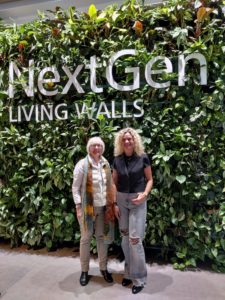 The AVF Dutch roundtable marked a step towards understanding the local needs for vertical farming to be successful in the Netherlands. With such warmth and mutual understanding among the participants everyone left such an encouraging environment with the potential for partnerships to become collaborative. We are grateful for the participants who came to this future-thinking event.
The AVF Dutch roundtable marked a step towards understanding the local needs for vertical farming to be successful in the Netherlands. With such warmth and mutual understanding among the participants everyone left such an encouraging environment with the potential for partnerships to become collaborative. We are grateful for the participants who came to this future-thinking event.
The AVF is committed to fostering discussions and collaborations in local hubs around vf. If you have a project you’d like to explore or are interested in us organizing a roundtable on these topics, please reach out to us.
Next Steps – Join the Movement
The AVF invites those interested in urban agriculture, food resilience, and VF to join broader system change in urban areas. Businesses, policymakers, urban planners, growers, horticulturists and individuals all have experiences, resources, and stories to contribute to this movement’s fabric.
Contact Us
Please contact the AVF to learn more, explore partnership opportunities and stay connected with the AVF and our network of urban agriculture innovators.
We welcome anyone looking to learn more, join future roundtables, or explore collaborations to join. Join us in promoting a more resilient, efficient, productive, and innovative agricultural future.
Together, we can help shape cities as places of food production and resilience.



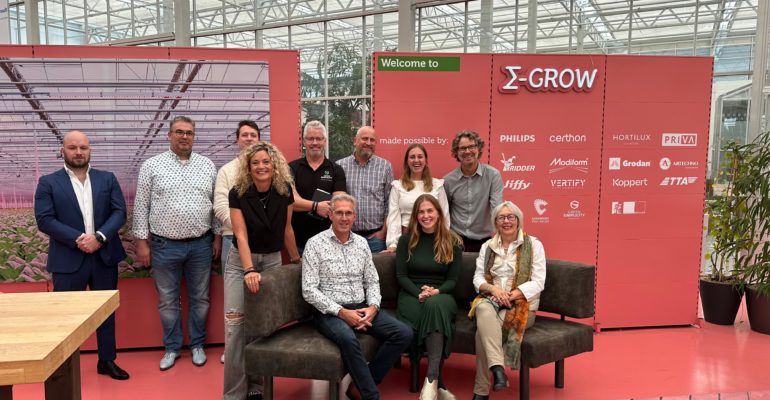
Comments are closed.